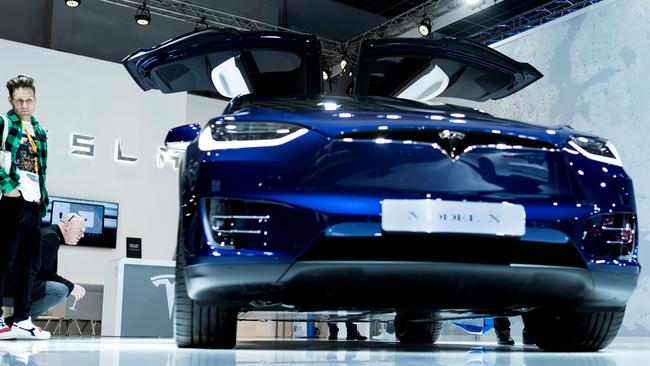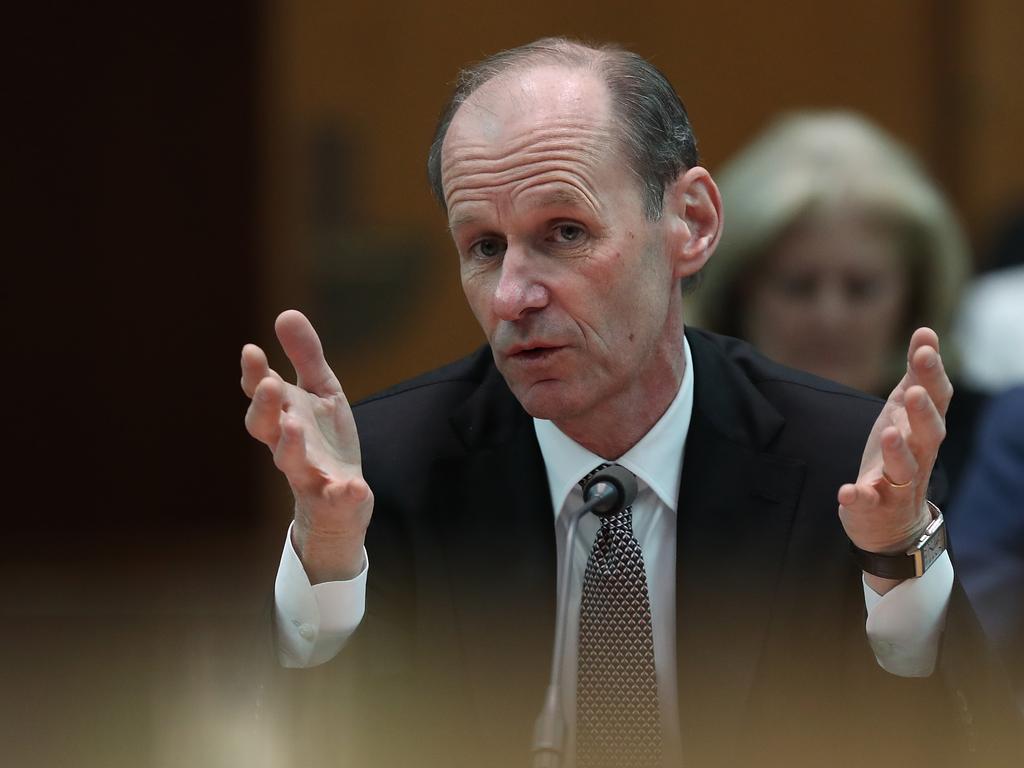
Last year, I reached the point where I no longer recognised the stockmarket as a venue through which reasonably sensible returns could be generated with an acceptable level of risk.
Recently on Wall Street, two key companies, Tesla and Apple, split their shares. Apple surprised with a 4-for-1 split that was the company’s fifth since going public in 1980. Apple shares immediately added 3.4 per cent.
Electric car manufacturer Tesla announced a 5-for-1 stock split in August. The split converted one $US2300 share price into five smaller shares, ostensibly to make buying the shares “more accessible”. The shares surged 12 per cent. In fact in the past 21 days, Tesla’s share price is up by around 50 per cent and the only announcement of any note during that three-week period was the stock split.
With Tesla shares up 577 per cent since the March lows, and Apple up 140 per cent, it is important to understand that splitting shares has absolutely no impact on the value of the business. A split merely takes a slice of pizza and slices it again. The size of the pizza remains exactly the same. Nevertheless, both Tesla and Apple are now trading at record highs.
The other crazy observation is that Apple’s market cap is now on par with the market cap of the entire US small cap index, the Russell 2000. Apple, Facebook, Amazon, Microsoft and Google represent 25 per cent of the market value of the entire S&P 500. China’s version of FAANG stocks, known as ATM (Alibaba, Tencent and food delivery app Meituan Dianping), represent just shy of 40 per cent of the MSCI China Index.
Index investing became popular after the financial crisis as way for investors to reduce concentration risk and avoid idiosyncratic risk (the risk of investing in individual companies). The recent concentration of these indices in just a handful of companies suggest investors have jumped from the frying pan into the fire and are invested in precisely the products they sought to sidestep.
Booming stockmarkets tend to attract IPOs because the time to list a company on the stock exchange, and sell out or sell down, is when the ducks are quacking. Indeed, the appearance of a conga line of IPOs is usually a sign that it’s getting a lot hotter in the kitchen. Current conditions have unsurprisingly triggered a tidal wave of tech unicorn IPOs, mega mergers and backdoor listings.
In the US, companies including Snowflake, Unity Technologies, JFrog, Sumo Logic, Palantir, Asana and Amwell have struck a combined valuation of roughly $US43bn. But don’t expect that $US43bn to be some multiple of earnings, because there would have to be earnings for that to occur.
Take Unity Technologies: the maker of the popular Unity Game Engine used by game developers to build titles such as Assassins Creed filed for its IPO in August. According to the company, in 2019, over half of the top games on mobile, PC and consoles were made with Unity and 53 per cent of the top 1000 games in the App Store and Google Play were made with Unity. But while Unity’s revenues have grown from $US381m in 2018 to $US542m in 2019, it has never made a profit. It lost $US163m in the most recent year, which was worse than the $US131m lost in the prior year. The company is valued at more than $US3bn.
It seems the local market is not immune to the optimism surrounding loss-making companies either: 63 companies in the All Ordinaries index gained 20 per cent or more this reporting season.
But what Josh Clark from QVG Capital points out is that out of the top 10 performing stocks in the All Ordinaries index, none made any free cash flow for the period. Of the 20 best performing stocks, only four made any free cash flow at all.
Historically, betting on loss-making companies has proven deleterious to your wealth. It would be dangerous to think Wacky Wednesday can continue indefinitely. Dr Seuss’s book ends when the boy wakes on Thursday to find everything back to normal.
Roger Montgomery is the founder and chief investment officer at www.montinvest.com








As a very young child, one of my favourite books was Wacky Wednesday in which a boy wakes to find everything is inside out, upside down or simply not as it should be. In the stockmarket, it seems every day is Wacky Wednesday.